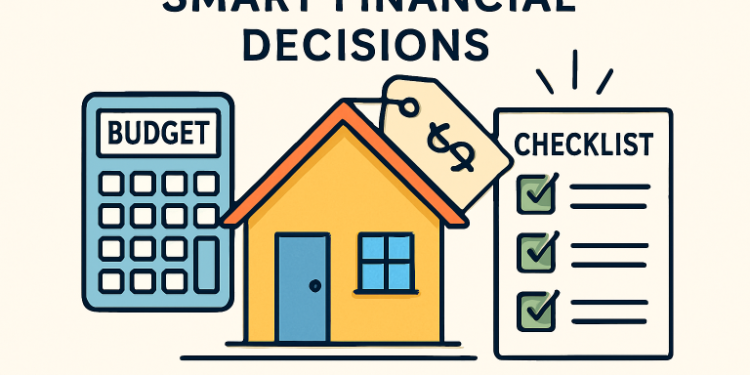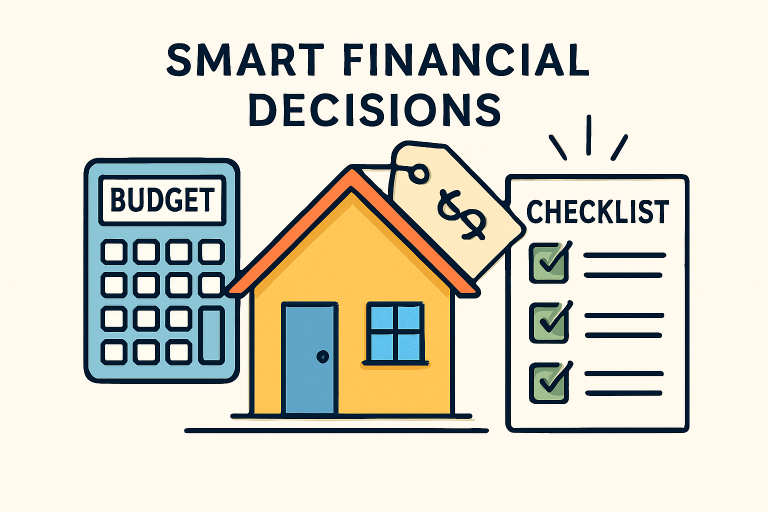Smart Ways To Save When Buying A Home In Today’s Market

In today’s fast-paced housing market, buying a home is more competitive—and costly—than ever before. But even with rising prices and limited inventory, there are proven strategies to help you maximize your buying power and minimize your expenses. Whether you’re browsing luxury condos or family-friendly Naples, FL, homes for sale, applying the proper steps at every stage can ensure you make a smart investment without overextending your finances.
Savvy buyers know it’s not just about making a winning offer, but about understanding the hidden costs, researching the right neighborhoods, and working with the best advisors. By following these practical tips, you can avoid common pitfalls and save thousands—both upfront and over the long term—while securing a home that fits your needs and lifestyle.
Table of Contents
- 1 Know Your Budget Before Browsing Homes
- 2 Get Pre-Approved And Understand Mortgage Options
- 3 Explore Market Trends To Time Your Purchase
- 4 Consider Hidden Costs Beyond The Listing Price
- 5 Compare Neighborhoods And School Districts
- 6 Use Negotiation Strategies To Your Advantage
- 7 Leverage First-Time Homebuyer Programs
- 8 Work With Industry Experts And Stay Informed
Know Your Budget Before Browsing Homes
The first rule of house hunting is knowing exactly how much you can comfortably afford. It’s tempting to scroll dream listings and envision yourself in upgraded kitchens or spacious backyards, but browsing before budgeting can quickly lead to disappointment or overspending. Most experts recommend that your total housing payment—including mortgage, property taxes, and insurance—be no more than 28–30% of your gross monthly income.
To get a clear picture of your homebuying budget, start with a trusted affordability calculator, such as the one from NerdWallet. Take time to review your current debts, future expenses, and savings for both your down payment and unexpected costs that may arise after moving in.
Get Pre-Approved And Understand Mortgage Options
Mortgage pre-approval gives you a distinct edge in a competitive market by showing sellers you’re both serious and financially qualified. When lenders review your finances and provide pre-approval, you’ll know exactly how much home you can buy—streamlining your search and strengthening your offer.
Take advantage of this early step to shop multiple lenders, compare rates, and familiarize yourself with different mortgage options. Whether you’re considering a fixed-rate loan for long-term stability or an adjustable-rate mortgage for potential savings in the first few years, educating yourself on the pros and cons is crucial. 
Explore Market Trends To Time Your Purchase
Timing can significantly impact the amount you ultimately pay for a home. Housing supply and buyer demand fluctuate throughout the year, creating better and worse seasons for serious buyers. National trends suggest that purchasing during late summer or the off-peak winter months often results in less competition and more room for negotiation. Local market data, including sales volume, median prices, and home inventory, can help you identify favorable windows of opportunity to act.
Consider Hidden Costs Beyond The Listing Price
Many buyers focus only on the sticker price, but it’s the “hidden” and recurring expenses that often surprise new homeowners. In addition to mortgage principal and interest, prepare for annual property taxes, insurance premiums, utility bills, and potentially homeowner association (HOA) fees. Experts suggest budgeting an additional 1–4% of your home’s value annually for routine maintenance and unexpected repairs.
Compare Neighborhoods And School Districts
Your home’s location is a major driver of both your long-term satisfaction and its future value. It pays to explore several neighborhoods before making a decision—even in areas just a few minutes apart. School ratings, crime rates, proximity to amenities, and access to transportation all play a role in determining home price and resale potential.
Use Negotiation Strategies To Your Advantage
Even amid rising demand, negotiation remains a valuable tool for buyers determined to save. From requesting seller-paid closing costs to seeking credits for necessary repairs or upgrades, don’t be afraid to advocate for yourself. If you’re eager to stand out in a competitive bidding situation, consider non-monetary incentives—such as flexibility with the move-in timeline—instead of simply increasing your offer price. An experienced agent can advise on when and how to negotiate for the best results.
Leverage First-Time Homebuyer Programs
Don’t overlook the financial benefits accessible to first-time buyers. Government and municipal programs may offer down payment assistance, grants, or lower-interest mortgage products to help you overcome common financial hurdles. Research options through your state and local housing agencies, and check for incentives with your lender—these programs can provide significant relief, reduce upfront costs, and ease your transition into homeownership.
Work With Industry Experts And Stay Informed
Real estate is a team effort, especially for buyers entering today’s dynamic market. A reputable agent, skilled mortgage broker, and qualified inspectors are essential allies. They can guide you through paperwork, uncover potential issues before closing, and keep you updated on local opportunities as well as shifting trends in pricing and inventory.
Following these innovative strategies can make the difference between stretching your budget and securing a home that’s both comfortable and financially sustainable. With the proper preparation, insight, and support, you can avoid costly mistakes and achieve your real estate goals with confidence—even in today’s ever-changing market.






